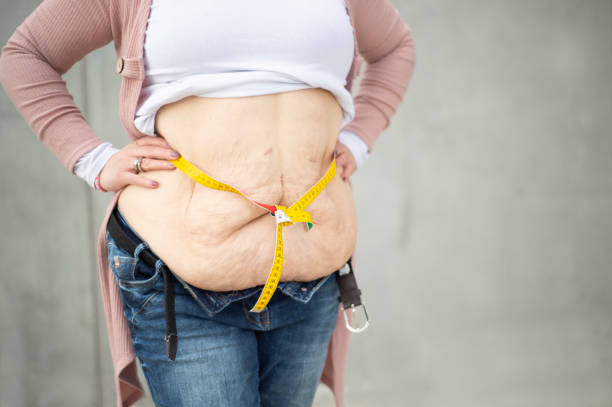Gastric Bypass Stomach Pain After Eating
After-Meal Gastric Bypass Pain
One of the most typical side effects of gastric bypass surgery is a pain in eating. This can occur when the stomach is reduced, making it difficult to fit large portions into the new organ. As a result, patients who undergo this procedure often experience indigestion, diarrhea, and flatulence after eating. Some may also experience an intolerance to certain foods or meals.
Although these symptoms are typically temporary, they may persist for years following the procedure. This can be especially problematic for those who have undergone gastric bypass surgery because they have limited daily food. In addition, some patients may need to eat smaller meals throughout the day to avoid discomfort and digestive issues. Continue reading to know more about the causes and what to do about gastric bypass stomach pain after eating.
Gastric Bypass Surgery: What Is It?
Obese persons can benefit from gastric bypass surgery’s health and weight-loss effects. A smaller stomach and altered food absorption in the stomach and small intestine can aid in weight loss. Roux-en-Y gastric bypass is another name for this operation.
When To Consider Gastric Bypass?
Your doctor may recommend gastric bypass surgery if you are morbidly obese with significant health complications despite your best efforts to shed pounds through dietary changes and increased physical activity.
Although gastric bypass surgery has a high success rate for helping people lose weight, it isn’t the best option for everyone. Talk to your doctor about your options and what you might expect from treatment.
Common Risks Associated With Gastric Surgery
The Dumping Syndrome
After having bariatric surgery, this is a common problem that arises. When food, especially sugar, passes through the esophagus and small intestine too quickly, a condition known as dumping syndrome can develop. This effect includes gastrointestinal distress, such as nausea, vomiting, and diarrhea.
Avoiding dumping syndrome is as simple as eating less sugar and processed food and taking time while eating. To help patients spot this illness early, doctors ensure they are well-informed. Patients can avoid the problem in the future by remembering the causes they discovered after the first occurrence.
Food Allergy
Researchers observed that 71% of people who had undergone gastric bypass surgery also developed an intolerance to fried foods, baked goods, and fizzy beverages. On the other hand, just 14% of those surveyed found the allergy to be highly bothersome.
After surgery, the body has a more challenging time processing fatty and sugary foods; therefore, we tell patients to limit or avoid them. These foods won’t be off-limits to you, but you should consume them less frequently and in smaller quantities.
Some persons “develop” lactose intolerance following medical procedures. They probably had a modest intolerance to lactose before surgery, but that increased significantly due to the surgery. Problems cease if they begin using lactose-free alternatives.
Bacterial Overgrowth In The Intestines
An average number of bacteria live in the intestinal tracts of all humans; the growth of microorganisms, however, can go unchecked in extremely rare circumstances after gastric bypass. This overgrowth of bacteria can deplete essential nutrients and lead to abdominal distention, cramps, gas, and diarrhea.
Anemia, malnutrition, and other vitamin and electrolyte shortages can occur if an overgrowth of bacteria in the small intestine prevents the body from absorbing enough of these substances. Antibiotics have been shown effective in treating bacterial overgrowth in the small intestine.
Overeating
Some believe that bariatric surgery will “prevent” them from binge eating. That, however, is not the situation. After undergoing bariatric surgery, one can sometimes resume unhealthy eating habits.
The following will likely occur if you continue to overeat after undergoing a gastric bypass:
- Diarrhea- When food enters the intestines too quickly, it might cause diarrhea.
- Discomfort- When Gastric Bypass or Sleeve patients overeat, they often experience cramping and stomach pain.
- Plugging- Experiencing a sensation that food is caught in one’s pouch or upper digestive tract.
- Stretching- If you have a habit of overeating, your stomach will expand even after surgery.
- Vomiting- Some people react by vomiting their stomach contents.
Nausea
There are several causes of nausea, including not chewing food thoroughly enough, feeling too full, being overly sensitive to smells, taking pain medicine, fasting for too long, experiencing postnasal drip, or being dehydrated. Antiemetics are drugs commonly used to relieve nausea in the hours and days following surgery. Follow your doctor’s instructions carefully when taking anti-nausea medicine.
Extreme nausea is so rare that it can prevent a person from getting enough fluids. If this occurs, intravenous (IV) fluids will need to be administered in a hospital setting. Dehydration and an imbalance of electrolytes can result from chronic vomiting.
Tips For Lowering The Risk Of Pain After Gastric Bypass
Some patients experience gastrointestinal issues after gastric bypass due to complications, including bacteria overgrowth in the small intestine. But poor eating is often the root cause of many problems. Before undergoing surgery, patients are educated for an average of six months on the necessary dietary and lifestyle modifications. Patients go through a diet progression in the weeks and months following surgery, starting with liquids only, progressing to thicker ones, soft food, and finally, solid food.
When it comes to avoiding stomach issues, sticking to the recommended diet is crucial. At first, they may seem too much to handle, but eventually, they will become second nature. And until you’ve had your dietitian’s stamp of approval, resist the urge to make any significant dietary changes or try any new items.
Tips in general:
- Reduce your serving sizes to prevent overeating.
- Chew your food properly and savor each bite.
- Restrict your intake of sugary and fatty foods.
- Do yourself a favor and write down everything you eat, including serving sizes.
- Take in some fluids in between meals to keep from getting too hungry.
Conclusion
Consult a medical professional if you have ongoing problems with your digestive system or your ability to digest food. Doctors can talk about your eating habits and conduct a check for postoperative issues. Here’s where a food journal comes in handy. Experts can typically find the cause of the problem and find a solution by analyzing your diet and eating habits. Even if you encounter gastrointestinal difficulties after surgery, the advantages usually exceed the disadvantages.
But there’s more to bariatric surgery than merely helping people slim down. The goal is to improve general health and lower the danger of developing obesity-related diseases like diabetes, high blood pressure, and high cholesterol. By maintaining a healthy diet and way of life after weight loss surgery, you can help yourself realize the many health benefits and avoid the risk of complications.




